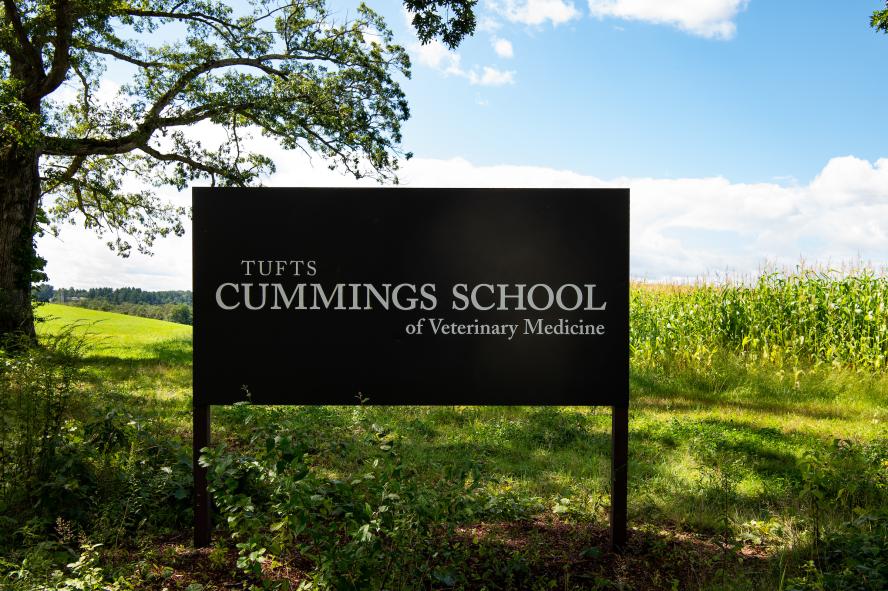-
About
- Leadership & Faculty
- News & Events
-
Academics
- Graduate
- Advanced Clinical Training
- Continuing Education
- Academic Departments
- Academic Offices
- Simulation Experiences
-
Student Life
- Offices
-
Research
-
Hospitals & Clinics
- Emergency Care
- Hospital Services
-
Community Outreach
- Volunteer
May is Mental Health Awareness Month
Q&A with Cummings School Social Worker Eric Richman

Mental Health Awareness Month is recognized each May. Eric Richman, a social worker and member of Cummings School’s Mental Health & Wellbeing Group, recently shared helpful information and coping strategies.
How prevalent are mental health issues among adults?
We know mental health conditions are common in the United States with over 18 percent of adults experiencing a mental health illness in any one year. While there are a number of more common mental health issues, we tend to see depression, bipolar disorder, anxiety disorders, and substance use disorders more frequently.
What are some of the warning signs of mental health issues?
Some warning signs are similar for each and some differ. They include an unusually sad mood that lasts a couple of weeks or longer, loss of enjoyment and interest in activities, lack of energy, difficulty concentrating or making decisions, sleep and appetite disturbances, and feeling worthless or hopeless.
We also know that the body remembers and holds symptoms as well as the brain, so one might have rapid heart rate, shortness of breath, muscle pains, and gastrointestinal symptoms, headaches, etc. One should always see a primary care doctor to rule out a medical diagnosis, before assuming it is related to a mental health condition.
What are the best practices to approach someone who may need assistance?
Talking with someone who may be experiencing a mental health issue is important. Open-ended questions, such as, “I noticed you have been very quiet lately and not joining us for lunch, how have you been feeling this week?” Approaching someone with a non-judgmental frame of mind is important, along with using empathy and empathic words or phrases. Finally, and so important, is the skill of listening, particularly reflective listening. Sometimes we try to jump in and offer solutions, but the best practice is to listen rather than try and fix or problem-solve.
What resources are available to direct individuals who are struggling?
For Tufts employees, our employee assistance program, KGA, has 24/7 access to talk with someone and can set someone up locally with a therapist. Tufts students have a similar program, AllOne Health, that provides comparable support.
Some additional resources include Mental Health America, National Council for Behavioral Health, National Institute of Mental Health, American Foundation for Suicide Prevention, Suicide Prevention Lifeline, JED Foundation for higher education, and National Institute on Alcohol Abuse and Alcoholism.
What should I do in terms of self-care?
We often talk about the ABC’s of self-care. They are, Awareness: The idea is that caring for ourselves starts with being aware of our own needs. Additionally, we are not always good at knowing when we have exceeded our limits. However, mindfulness practices can help with this focus. The next is Balance: such as work-life balance or integration. We sometimes need to focus on setting limits and establishing boundaries. The third is Connection: We are social creatures and need connection and relationships to thrive. These may be with friends, family, and the environment, such as taking a walk in nature with a friend or by ourselves.
For more information, visit campus resources for students.